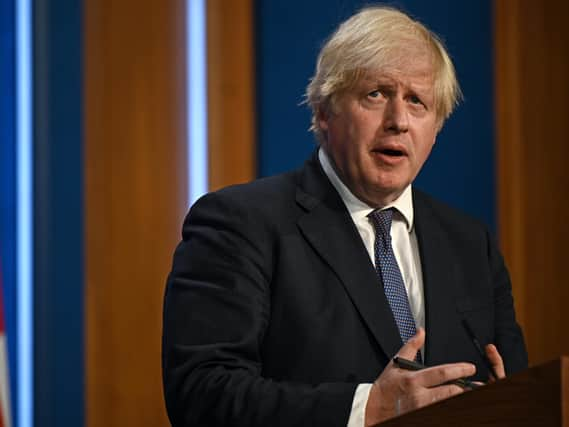Why the Prime Minister must employ the art of compromise over loan charge saga - Greg Wright


But every now and again, a backbencher will ask a penetrating question that cuts across the political divide and demands further analysis.
The SNP MP John McNally has been widely praised for his decision to confront the Prime Minister with evidence of the harm being inflicted on some of his constituents, who are facing life-changing tax bills due to the loan charge.
Advertisement
Hide AdAdvertisement
Hide AdMr McNally told the Commons: “We hear a great deal..in this place about the rule of law and injustice. Can the Prime Minister tell me what he is going to do about the injustice that my constituents in Falkirk and indeed families up and down the UK are facing every day because of the retrospective loan charge that is fast turning into the next post office scandal..”
To cries of ‘hear, hear’ Mr McNally called on the Prime Minister to accept that the matter required further and immediate investigation.
In reply, the Prime Minister said he was acutely aware “as are all colleagues around the house” of the pain suffered by all those that entered into loan charge schemes.
He added: “And I think, alas, they were misguided to do so, but I think that the line taken by the Treasury, I am afraid, is right on this.”
Advertisement
Hide AdAdvertisement
Hide AdThe loan charge, announced by government in 2016, was designed to tackle tax avoidance schemes where individuals receive income in the form of loans that are not repaid to avoid income tax.
Following a public outcry, after thousands of people on modest incomes faced large and unexpected tax bills, the Government commissioned a review into the policy in 2019.
While the review acknowledged there was a “clear public interest” in preventing the use of loan schemes to avoid tax and maintained the principle of taxpayers being responsible for their tax affairs, it concluded that the loan charge went too far; overriding taxpayers’ statutory protections by applying an unprecedented 20 year look back period and failing to adequately consider the serious distress it would cause some of the people affected. It said the charge should continue to apply to loans entered in to from December 9 2010 onwards to recoup tax that is due.
The review has not ended the controversy. At least 76 Parliamentarian have signed a letter to the Prime Minister and the Chancellor Rishi Sunak calling for a “fair resolution” to the loan charge saga.
Advertisement
Hide AdAdvertisement
Hide AdThe letter urges the Government to accept that the vast majority of people facing the loan charge are clearly victims of mis-selling and “there needs to be a different approach, that reflects this”.
A survey carried out by the Loan Charge All Party Parliamentary Group showed that people facing the loan charge were not warned of the risks of being pursued by HMRC and had simply followed professional advice. They had not been trying to avoid their responsibilities as tax payers.
There remains no sign of a Government U-turn. Last month the Chancellor Rishi Sunak told The Yorkshire Post that the policy had “already been through” a lot of scrutiny and been amended and adjusted.
HMRC has said that the number of avoidance promoters in the market has greatly reduced in recent years and it is focusing on tackling a small and determined group who are still promoting schemes. It has also said it is right that it continues to tackle these type of avoidance schemes, because they deprive public services of vital funding.
Advertisement
Hide AdAdvertisement
Hide AdHMRC has started sending people early intervention letters where it is believed they might be in an avoidance scheme to give them the chance to get out as soon as possible.
It will become hard for the Government to ignore the growing number of dissenting voices, especially when it includes MPs on it own benches.
Tory MP Greg Smith, Co-Chair of the Loan Charge and Taxpayer Fairness APPG, believes the loan charge continues to be a problem, not just for families, but also for HMRC and the Government.
He added: “It is in everyone’s interests now to come up with a fair and final resolution to this problem, that avoids thousands of bankruptcies and also allows HMRC to focus on other things.”
Advertisement
Hide AdAdvertisement
Hide AdThe Prime Minister is right to acknowledge the pain caused by the loan charge scandal. It’s time for him to finally close this tragic saga, through the noble art of compromise.
Support The Yorkshire Post and become a subscriber today. Your subscription will help us to continue to bring quality news to the people of Yorkshire. In return, you'll see fewer ads on site, get free access to our app and receive exclusive members-only offers. Click here to subscribe.